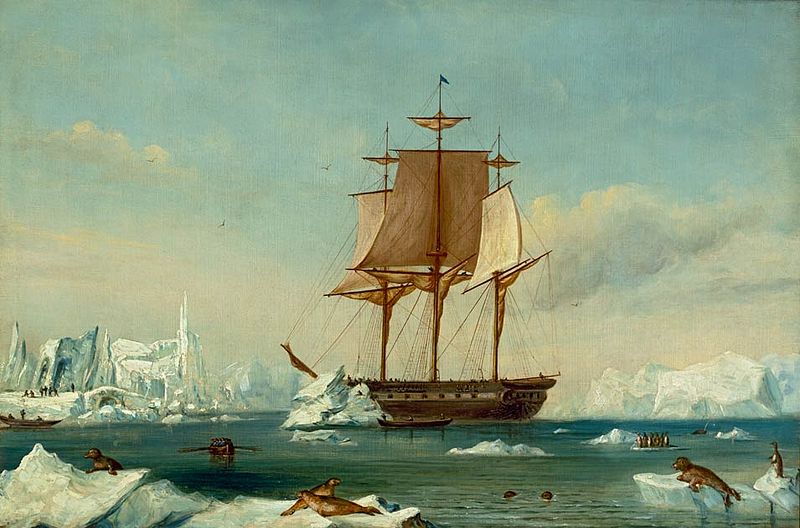"Poor Pym!" - Verne Meets Poe in Antarctica
My current interest in Antarctica led me to finally read The Narrative of Arthur Gordon Pym of Nantucket, by Edgar Allan Poe, and its sequel An Antarctic Mystery, by Jules Verne. (I am the biggest Vernian fangirl ever, so this duology sounded written for me.) While in fairness I can only give Pym 3 stars and its sequel 3.5 stars, together they were definitely worth the read, if you're into polar fiction, Poe, and/or Verne.
Pym is probably the least - or most? - Poe-like writing of his I've read. Think "Treasure Island ends badly"... Indeed, the plot starts out as a traditional sea story: boy runs away to sea, boy happened to pick a ship that was bound for adventure (or, in Poe fashion, terror). The plot has a spontaneous quality to it, and when Arthur Pym eventually makes it to Antarctica, it seems rather like an accident or an aside. You'll find several classic Poe moments - aka spooky stuff - throughout the book, but not as many as fans might hope for.
I was a bit awed by Poe's version of a sea story. He seemed comfortable with the terminology; this may also be the first, pre-modern sea story I've read in which the author tries to educate the audience, or at least doesn't assume they understand everything. I really liked that aspect; it made me wish he had written more of this kind of thing.

On the other hand, I struggled with the characters, who seemed to be fluid in their roles - sometimes heroes, sometimes villains, yet without enough deliberation to make them true anti-heroes. It seemed unrealistic.
Jules Verne tried to remedy - well, everything! I'm ever wary of translations, so I'm not sure how much one can safely say is Verne in An Antarctic Mystery. I found a fascinating article which talks about this translation by Sarah Frances Hoey (warning: article contains major spoilers of Jules Verne novels)...it sounds like it's not purist. Taken as a whole, though, Verne's book reads like a hearty fanfiction; he rose to the challenge of trying to mend the cliffhanger ending, while exploring the characters and their actions. I can definitely read his style in it, so the translation can't be that bad. There is some racist language, which surprised me. I don't remember ever reading it in Verne before, which could be the translation or censorship by other translators. I'd have to see the French, I guess, to know.
Plotwise and character-wise, I liked this sequel a bit more. The sphinx part reminded me of that Ancient Aliens show, haha... With the right screenwriter, these two books would make a great miniseries.



Comments
Then I had no idea - until today! - that Verne wrote a sequel tothis story. Thanks for educating me about that - I'm off "to the bat cave!" now. :-)